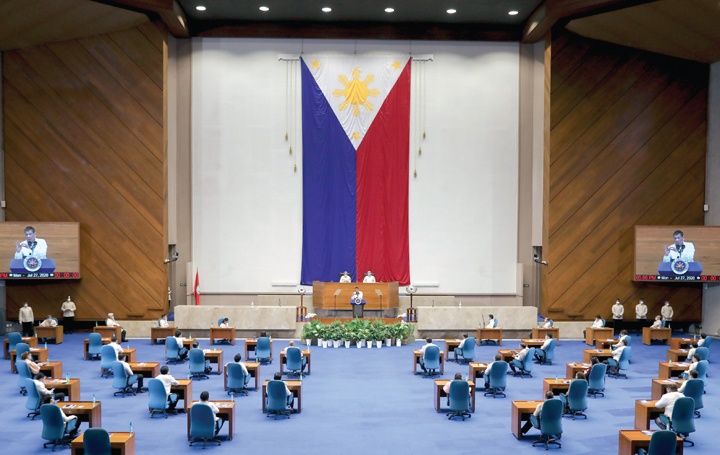
THE House of Representatives on Monday approved on second reading the Lower Chamber’s priority measure, the proposed Ease of Paying Taxes (EOPT) Act.
Through viva voce voting, lawmakers approved House Bill (HB) 8942, which aims to simplify tax compliance procedures by segmenting taxpayers and better tailoring processes, enhance the portability of tax transactions and legislate the Taxpayer’s Bill of Rights.
The bill also creates a Taxpayer’s Advocate office in the Bureau of Internal Revenue (BIR) to act as the taxpayer’s recourse for issues with the BIR.
Key benefits of the EOPT include allowing taxpayers to file for a Tax Identification Number (TIN) offsite, the removal of the required annual BIR registration and harmonization of venue rules to allow fully-online filings with the bureau.
The bill introduces a “medium” taxpayer classification and streamlined procedures for the “small” taxpayer.
It also cancels the Bureau of Internal Revenue (BIR) registration requirement, which will also cancel automatic BIR audits. The BIR shall decide whether or not to audit based on risk assessment evaluations.
The measure removes the need to secure authority to print from the BIR before hard copy invoices can be issued. The business style requirement will also be removed.
The bill ensures taxpayer’s rights as the guiding principle in formulating and implementing tax policies and regulations. The taxpayer’s right to have the cost of compliance respected whenever tax rules are prepared and enforced shall be considered whenever the BIR prescribes new rules on the filing and payment of taxes.
Earlier this month, the Joint Foreign Chambers (JFC) also called for the passage of the measure.
“We find highly noteworthy in this bill that it harmonizes Value-Added Tax (VAT) recognition for goods and services, which in turn removes the official receipt (OR) requirement for payment of services that is unique to the Philippines,” the JFC said.
“Allowing a single document (invoice) to support proof of payment of goods or services will make the future e-invoicing process more efficient. Also, it conforms to the Ease of Doing Business and Efficient Government Service Delivery Act of 2018 (Republic Act 11032) that seeks to increase efficiency by reducing processing time, eliminating red tape and curbing corrupt bureaucratic practices,” the JFC said.
In remarks following the passage of the measure in the chamber, Ways and Means Chairman Albay Rep. Joey Sarte Salceda and principal author of the bill cited the support of the Department of Finance for the measure.
“When you are paying down Covid-19 debts, you want your taxpayers to be as compliant as possible. If you make it easier for them to do that, then they will probably be more willing to pay the right taxes. Tax complexity creates tax arbitrage and even administrative corruption. If you make it easier to pay taxes, you make life harder for tax cheats and fixers,” Salceda said.
The lawmaker explained HB 8942 was supposed to be a twin bill of the Tax Reform for Acceleration and Inclusion, or Train, law and that the core of this reform was the Tax Administration Reform Act, or Tara).
Salceda principally authored both and went around the country in a caravan called “’Tara’ na sa ‘Train.’”
“But the EOPT is an even better bill than the original Tara because its focus is really easier tax experience,” he said.
Read full article on BusinessMirror


